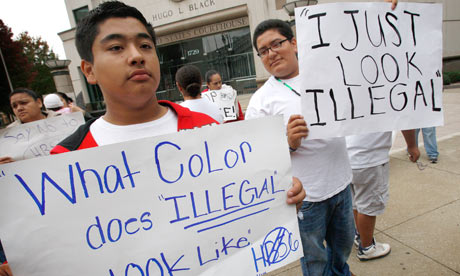By Brittney Hodnik
Impunity Watch Reporter, North America
WASHINGTON, United States – The self-proclaimed “toughest sheriff in America,” Maricopa County Sheriff Joseph Arpaio has allegedly committed multiple civil rights violations. The allegations specifically refer to maltreatment of Latino prisoners. Arpaio has dismissed the complaints as “politically motivated.”

Arpaio has always prided himself as tough on crime, especially illegal immigration. He has consistently dismissed accusations of using racial profiling tactics. He is most well known for jailing inmates in tents in the desert and dressing them in pink underwear.
The U.S. Justice Department has began an investigation into alleged systematic discrimination against Latinos, including unjust immigration patrols and jail policies that deprive prisoners of basic Constitutional rights, reports the Huffington Post. Beyond the civil rights investigation, a federal grand jury has also been investigating criminal abuse-of-power allegations since at least December 2009, according to the Washington Post.
The Huffington Post quoted Thomas Perez as saying, “We found discriminatory policing that was deeply rooted in the culture of the department, a culture that breeds a systematic disregard for basic constitutional protections.”
Perez is the head of the Justice Department’s civil rights division. According to CNN, he added that an independent reviewer described Arpaio’s tactics as “the most egregious racial profiling in the United States.”
According to figures provided by Arpaio’s office, 57 percent of the 1,500 people arrested in 20 police sweeps since January 2008 were undocumented immigrants.
CNN reports that the Justice Department said Arpaio’s detention officers invoked offensive slurs and profanities against Hispanics, calling them “wetbacks,” “Mexican bitches,” and “stupid Mexicans.” The report also said that Latinos are four to nine times more likely to be stopped in traffic stops in Maricopa County than non-Latinos are; often times, Latino drivers are stopped and arrested without good cause.
Furthermore, the Associated Press reports that legal U.S. citizens who are Latino were arrested or detained without cause during many of the traffic stops. Additionally, the civil rights report says that Latino inmates in Arpaio’s jails were punished for failing to understand English commands although they had little to no English skills. These violations were punished with solitary confinement for up to 23 hours a day. Further denials of basic daily services were also reported.
Arpaio insists that the politically motivated allegations by the Obama administration are uncalled for. The Huffington Post quotes Arpaio as saying, “The Obama administration might as well erect their own pink neon sign at the Arizona-New Mexico border saying welcome illegals to your United States, may home is your home.”
Jack MacIntyre, Arpaio’s deputy chief said that the Justice Department’s allegations were a “sneak attack by the federal government on the citizens of Arizona,” reports CNN. Arpaio’s attorney, John Masterson said, “People have an intention to go out on a witch hunt, and that’s what they come up with”
Adding to the political atmosphere, Texas Governor and Republican presidential candidate, Rick Perry is defending Sheriff Arpaio, according to CBS News. Perry agrees that the Justice Department is on a ‘witch-hunt.’ “I would suggest to you that these people are out after Sheriff Joe,” said Perry, according to CBS News.
In addition, Maricopa County Republican Party Chairman, Rob Haney has described Arpaio as “a national hero.” He too believes that the Department of Justice is “tyrannical” and is personally attacking Arpaio for his stance on immigration, reports the Tucson Citizen.
Arpaio previously worked for the U.S. Drug Enforcement Administration, which allowed him to work in Mexico City for some time, developing a compassion for the people there. “[E]nforcing the law overrides my compassion. I took an oath of office and I’m enforcing the state and federal law. I will continue to enforce all the laws,” Arpaio said (CNN).
On top of these civil rights issues, Arpaio is currently facing pressure from his opponents to resign due to failed sex crime and molestation investigations. The Huffington Post reports that his office said more than 400 sex crimes investigations had to be reopened after the Justice Department learned of cases that hadn’t been adequately investigated, or investigated at all.
As of now, the Justice Department requires Arpaio to set up effective policies against discrimination that a judge would monitor for compliance, reports the Associated Press. Arpaio has until January 4, 2012 to decide whether he wants to work out an agreement; if not, the federal government will likely sue him.
For more information, please visit:
CBS News — Perry Defends Joe Arpaio — 16 Dec. 2011
The Huffington Post — Joe Arpaio, Arizona Sheriff, Rebuked by Justice Department for Civil Rights Violations — 16 Dec. 2011
Tucson Citizen — Arpaio is “a National Hero” — 16 Dec. 2011
CNN — Arizona Sheriff Rebuts Federal Allegations of Discrimination Against Latinos — 15 Dec. 2011
The Star (Associated Press) — ‘Toughest Sheriff in America’ Arpaio Violated Civil Rights, Says Scathing Report — 15 Dec. 2011
The Washington Post — Arizona Sheriff’s Office Gets Hit with Scathing Civil Rights Report from Justice Department — 15 Dec. 2011



